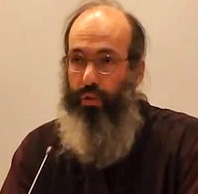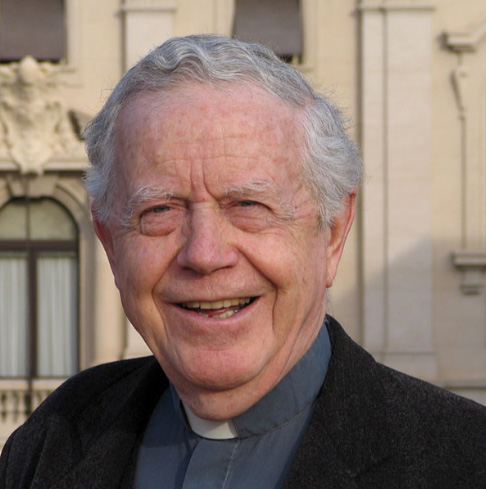- Home
- About us
- Students
- Courses
- Research
- Library
- News & Events
- Gallery
- Contact
- Our Blog
Latest News

2019 Theology Symposium - Keynote Speakers

Revd Prof. Demetrios Barthrellos
Cambridge Institute of Orthodox Christian Studies, Hellenic Open University in Patra
Biography: Revd Prof. Demetrios Barthrelloshas published widely Christology, specifically looking at the significance of the conciliar Christological decisions of the first common Christian millennium and how they speak to us today. Fr Demetrios hails from Greece where he teaches at the Greek Open University (Patra); he also teaches in the Cambridge Institute of Orthodox Christian Studies and the University of London. He has also been Visiting Research Fellow of King’s College (University of London). After graduating with a degree in philology and theology, Fr Demetrios pursued doctoral studies at the University of London at which he graduated in 2001. He is author of The Byzantine Christ: Person, Nature and Will in the Christology of St Maximus the Confessor (Oxford University Press, 2004) and An Outline of Dogmatic Theology (in Greek). He is a married clergyman of the Metropolis of Mesogeas and Lavreotikis (Church of Greece) and the father of five children.
Keynote Address: "The Sinlessness of Christ: An Ancient Dogma and its Contemporary Significance"
Abstract: The Christian tradition has always proclaimed the sinlessness of Christ. This is understood in terms of both who Christ was and what he did. So, Christ is believed to have had a sinless and holy human nature, without the sinful passions that are characteristic of fallen humanity; and he is also believed never to have sinned. In the last two centuries, however, a number of theologians, especially in the protestant tradition, have challenged this doctrine by arguing that Christ’s humanity was fallen like our own, with sinful tendencies and passions, the only difference between him and us being that Christ never sinned. In this talk I will discuss the question of the sinlessness of Christ and argue against the above claim. I will also show how this Christological doctrine is related to Christian anthropology and ethics.

Revd Prof. Gerald O'Collins SJ AC
Jesuit Theological College, University of Divinity (Melbourne)
Biography: Revd Prof. Gerald O’Collins AC SJ, an Australian Jesuit priest is currently Research Professor and Writer-in-Residence at the Jesuit Theological College, University of Divinity (Melbourne) and a research professor in theology at St Mary’s University College in Twickenham. For more than three decades, he was professor of systematic and fundamental theology at the Pontifical Gregorian University in Rome. In recognition of his immense contribution to theological scholarship and ecumenism, he was distinguished with the Companion of the General Division of the Order of Australia (AC). After graduating from the University of Melbourne, Fr Gerard went on to earn a Licentiate in Sacred Theology at Heythrop University, London and a Doctorate in Theology at Cambridge University. He is a prolific author, with hundreds of articles in peer reviewed journals and over fifty mongraph publications, some of which include: Chistology: A Biblical, Historical, and Systematic Study of Jesus Christ (1995); Christ our Redeemer: A Christian Approach to Salvation(2007); Jesus: A Portrait(2008) and Jesus our Priest: A Christian Approach to the Priesthood of Christ (2010).
Keynote Address: "New Testament Scholarship Supports Christology"
Abstract: Witness coming from the Gospels supports orthodox faith in who and what Jesus is. He claimed more than prophets: he ‘came’ in his own name (Mark 2:17). He identified himself with the reign of God. To accept the divine kingdom was to accept Jesus. He worked miracles and taught in his own name (‘I say to you’). He claimed authority over the Sabbath, the Temple, the Law, and the forgiveness of sins; this provoked the charge of blasphemy. As Son of Man, he was decisive for the final salvation of human beings. His claims were mostly implicit but, nonetheless, claims to divine identity and prerogatives. St Paul and the tradition behind him acknowledged Jesus as divine Lord (1 Cor 16:21; Phil 2:6-11, which echoes Isa 45:23-24). The apostle’s opening salutation (e.g. Rom 1:7) put Christ as Lord on a par with God our Father. Paul also used the Jewish confession of monotheism to portray Jesus as agent of creation alongside God the Father (1 Cor 8:6). Historical witness (to the message of Jesus, his resurrection, and the heroic discipleship of followers) provides evidence for faith in him. Yet faith goes beyond the evidence and is inspired by the inner testimony of the Holy Spirit.




.jpg)



(1).jpg)

.png)